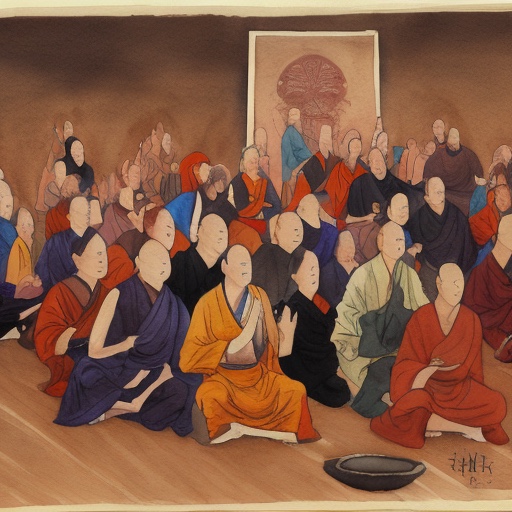The Power of Non-Reactivity: Lessons from Shun (2 min 5 sec)

Preview
1. Once there lived a great Zen master named Shun who was renowned for his wisdom and teachings.
0
2. He had many students who came from far and wide to study under him.
0
3. One day, a young warrior named Ken arrived at the village where the master lived.
0
4. Ken was a renowned fighter who had never been defeated in a match.
0
5. He challenged Shun to a fight, hoping to defeat the master and prove his own superiority.
0
6. Shun accepted the challenge, much to the concern of his students.
0
7. On the day of the fight, Ken began hurling insults and curses at Shun, hoping to provoke him into making a mistake.
0
8. But Shun remained calm and composed, refusing to engage in the young warrior's taunts.
0
9. Finally, after hours of verbal assault, Ken grew tired and gave up.
0
10. He left feeling defeated and ashamed.
0
11. The students gathered around Shun, curious about how he had been able to endure such an ordeal.
0
12. Shun replied, "If someone comes to you with anger and insults, and you do not engage with them, to whom do the anger and insults belong?"
0
13. The students understood that Shun's calm and non-reactive nature had allowed him to diffuse the young warrior's aggression without engaging in the same negative energy.
0
14. This story illustrates the power of non-reactivity and the importance of not taking on the negative energy of others.
0
15. It aligns with the teachings of Love, which emphasizes the importance of forgiveness and non-judgment in order to find inner peace.
0
16. The master, Shun, represents the ideal of non-reactivity and inner peace, while the young warrior, Ken, represents the ego and the negative energy that is present in our lives.
0


No comments.